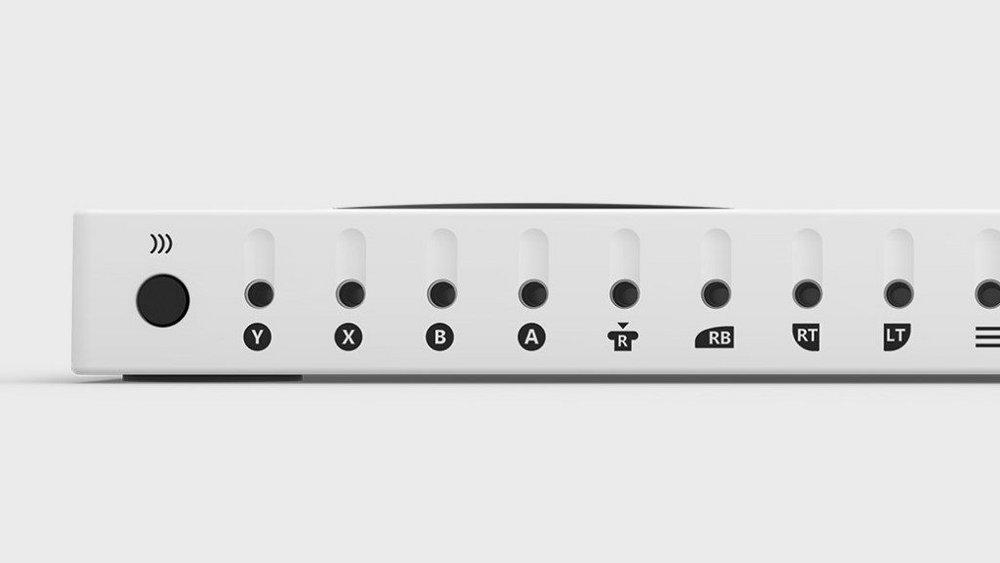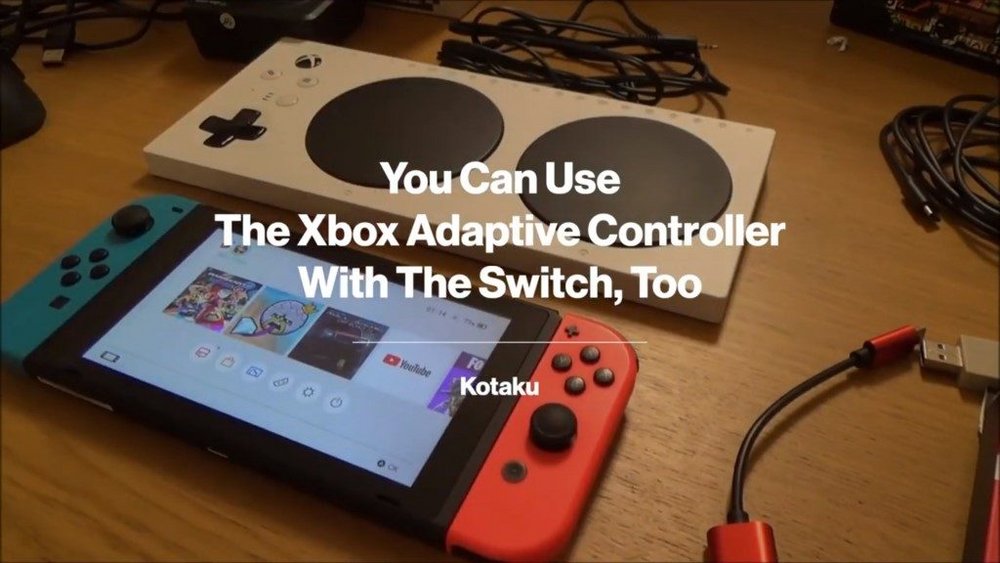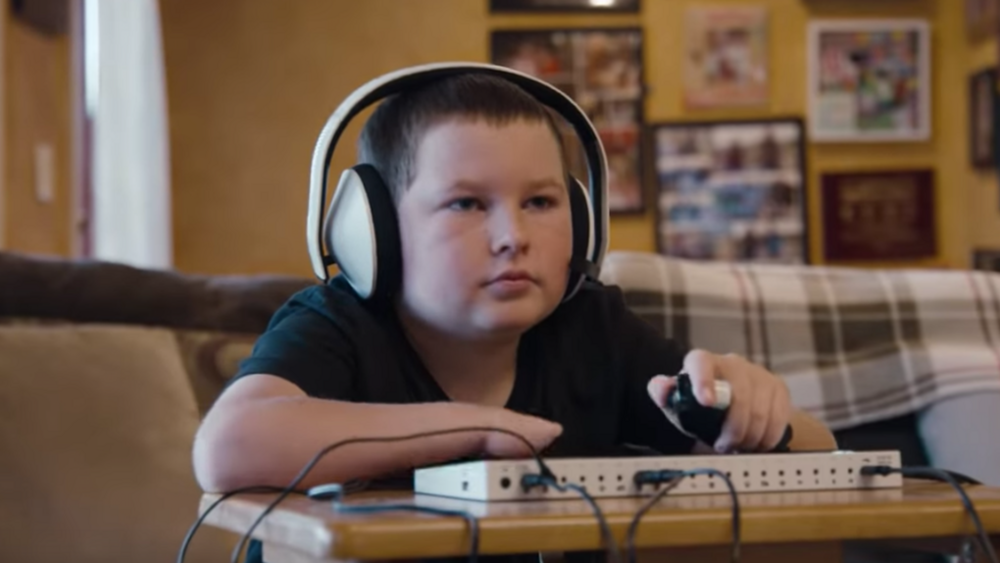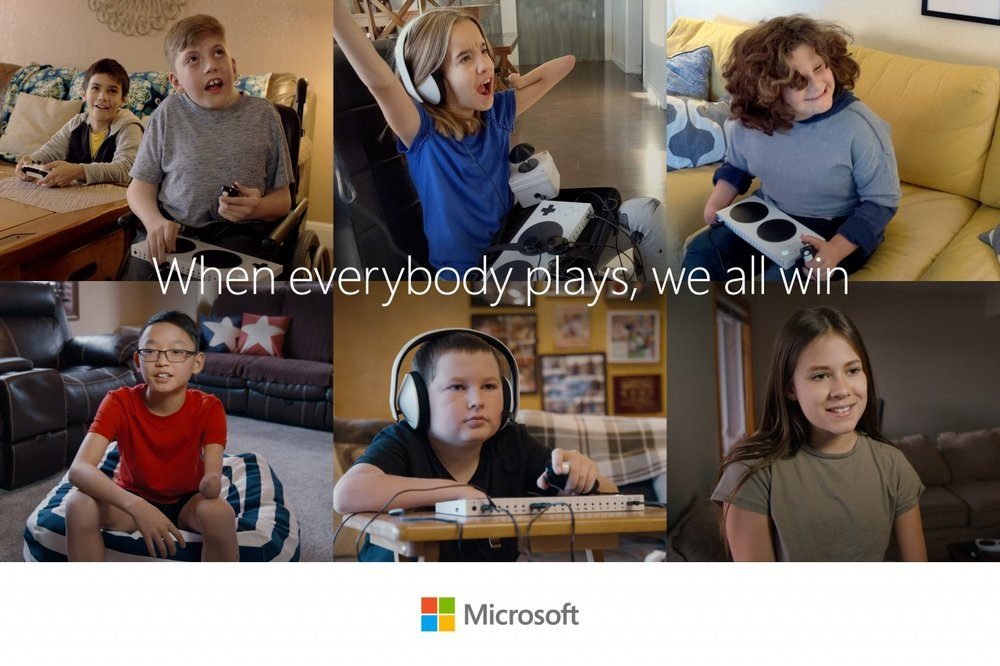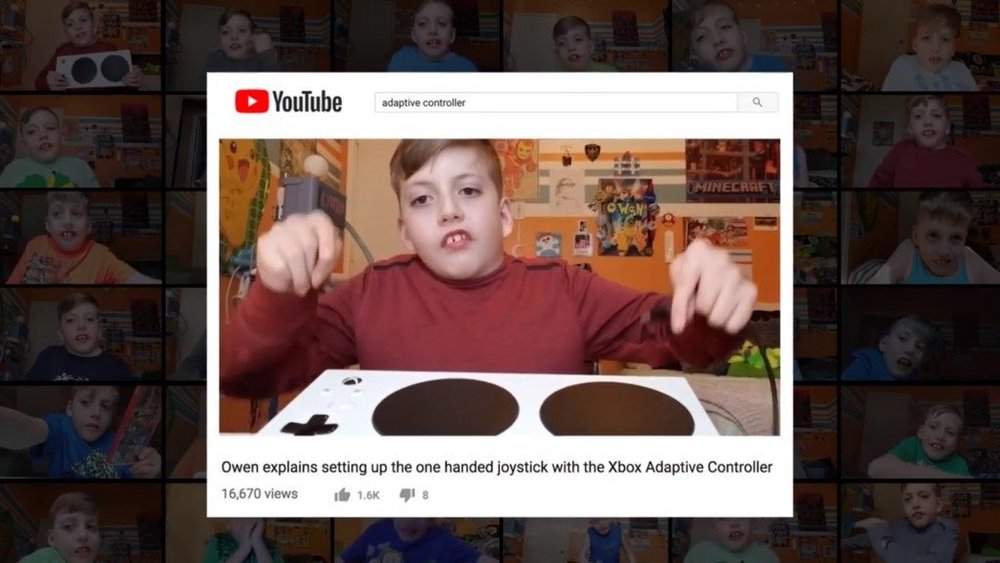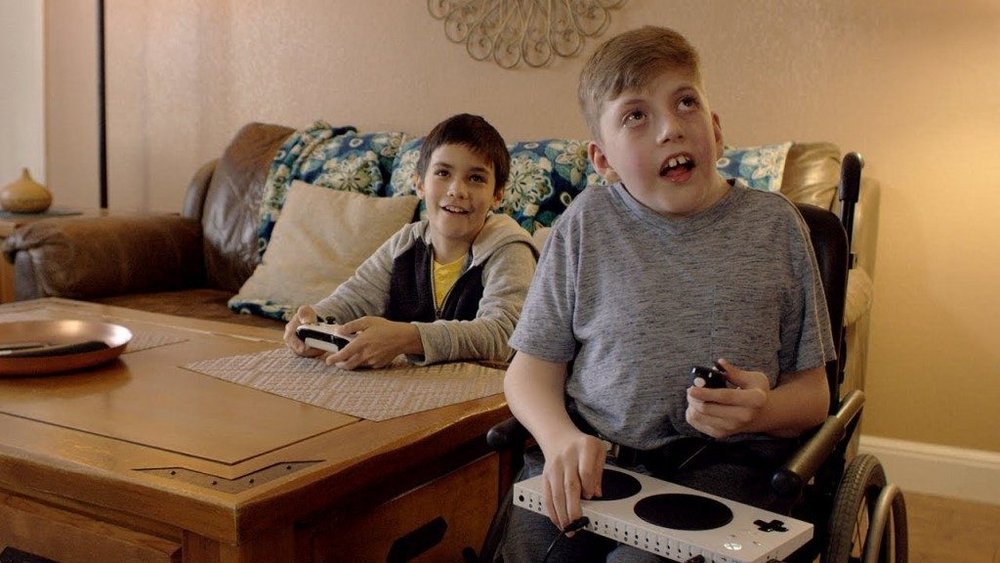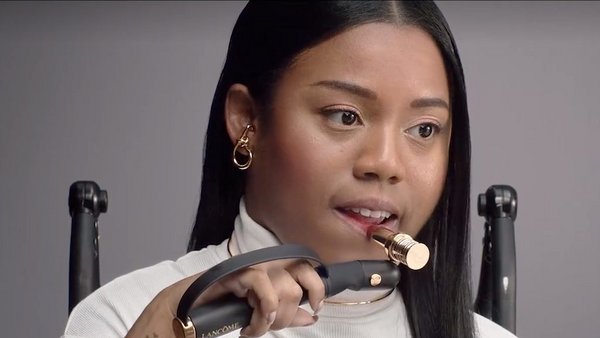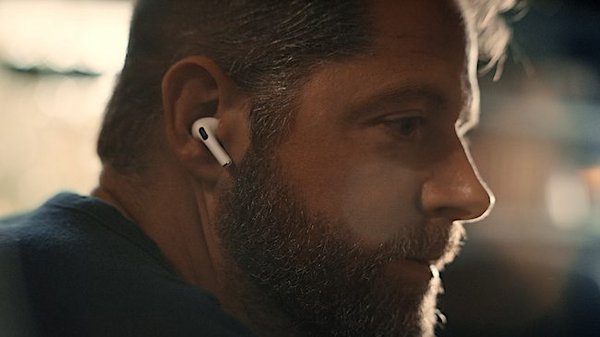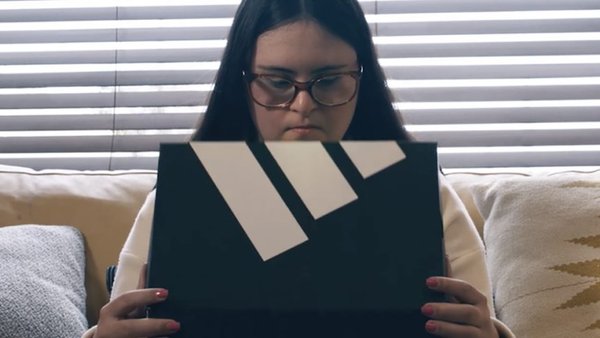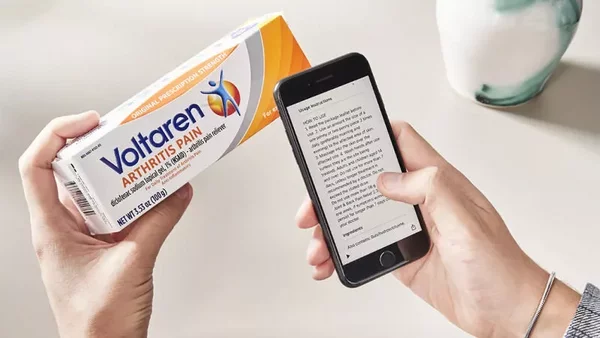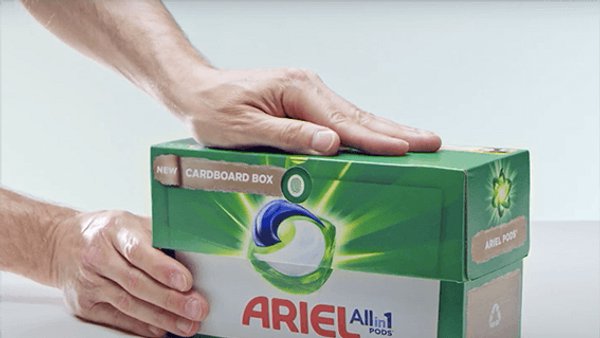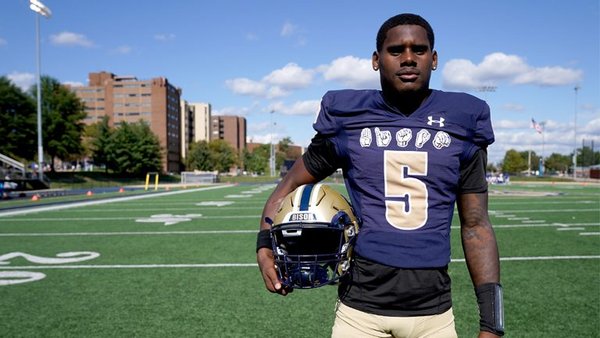We recently reported on how Microsoft developed a new type of gaming controller for Xbox that is designed to be more accessible for gamers who have disabilities or limited mobility.
Microsoft released a Super Bowl ad called We All Win, created with McCann New York, which depicted kids with a variety of disabilities describing the freedom and joy the Adaptive Controller provides them.
The Adaptive Controller enables a range of devices to be plugged into the system at once, enabling people to tailor their controller to whatever works best for them. It's also designed to work across platforms, enabling people with different gaming systems (such as the Nintendo Switch) to be able to use the controller to play games.
The controller was developed in partnership with charity organisations SpecialEffect, the Cerebral Palsy Foundation, Warfighter Engaged and the AbleGamers charity.
Results / Changing the Game took home the Grand Prix in the brand experience and activation category during the Cannes Festival of Creativity 2019. According to the agency, the ad delivered a 246% increase in social voice, $35m in earned media and 1.1 billion impressions.
To understand more about the insights behind the Super Bowl campaign, we spoke to Joanna Schwab (global strategy director) and Shayne Millington and David Banta (executive creative directors) from McCann New York. We also interviewed Kathleen Hall, vice president of brand at Microsoft.
How did the Adaptive Controller come to exist? Was there a brief for McCann?
Millington: We didn't quite have a brief, there was a product and we knew we wanted to talk about inclusivity and accessibility to a wider audience. We tapped into the insight of the importance of gaming in children's lives, from there, we turned a small product launch into the biggest statement that Microsoft has probably ever done.
Banta: There have been solutions for disabled gamers for some time, such as third-party companies that can custom build bespoke gaming equipment, but it’s unfortunately very expensive and some people with disabilities just don’t have that kind of money, like the veteran community coming back after fighting in Afghanistan and Iraq. Some of these soldiers are heavy gamers but now live with life-changing injuries, these men and women are really the ones who kick-started this campaign as they approached Microsoft asking for this product. The prototype was created off the back of an internal Microsoft hackathon where Microsoft ended up with the Adaptive Controller concept.
Banta: Now the Adaptive Controller is a platform to take on all these third-party peripherals. This community must no longer jump through hoops or improvise at home using duct tape or whatever else to create their ideal gaming setup. The Adaptive Controller has 20 external ports, so 20 different companies can create peripherals, which will all be compatible with the software, so gamers can mix and match with whatever works best for them and their disability.
Who was the audience for this campaign?
Millington: Gaming can be a double-edged sword sometimes, especially for kids. What this campaign does is diminish that negative attention and make everyone feel good about gaming. What we found from our social listening is that gamers feel vilified in a way. But the Adaptive Controller shows how gaming has the power to unite, bringing people of all races, ethnicities, disabilities, abilities, ages and genders together. In that sense, the audience was everyone.
Banta: There was also our long-standing Xbox community, who through social listening in the days and weeks following the Super Bowl showed that they fully embraced and loved the campaign. The audience believed it was a big moment for them, only further entrenching their Xbox brand loyalty. If you are not in the disabled community, and you're an Xbox fan, the adaptive controller should make you even more loyal, because these consumers will deeply understand the importance of gaming in people's lives.
Gaming is more than a game for those living with disabilities. It's a social outlet. It enables them to interact with the larger world, build their confidence and really enter worlds where their disabilities don't matter.
Joanna Schwab, McCann New York
Tell me about the We all Win film. Who were the kids who starred in the ad?
Banta: We went around the country looking for gamers with disabilities who may benefit from this product and didn't know it existed. Once we had some interested kids, we sent a representative from Microsoft into everyone's house, talked to their families and showed them how to use a controller, then we watched them play and asked for their feedback. Finally, we interviewed them and that's where the bulk of the content came from for the film.
Millington: There was no script and we didn’t put our own voices into it. It was all from the kids and the community, which is why the communication was so powerful. We ultimately didn't want the video to be a pity party and have people feel bad for these kids, we wanted people to feel empowered and witness what gaming truly means to them. We wanted to know the perspective these kids had on gaming, this is where we heard stories like Owen’s, who told us he goes home during recess because it's too difficult for him to see all the other kids outside playing. But while gaming, he can run, jump, fly and play with his friends as an equal participant. We would have never been able to get those quotes or that emotion if we interjected ourselves into it.
Schwab: Gaming is more than a game for those living with disabilities. It's a social outlet. It enables them to interact with the larger world, build their confidence and really enter worlds where their disabilities don't matter.
What was the objective of the Changing the Game campaign?
Schwab: We wanted to bring the brand mission to life, which is of making gaming accessible to all. In doing that, we really did want to speak to everyone, not just those in the gaming community or those living with disabilities.
Millington: The world needs to know that these solutions are out there and that they're available. Also, when we talk about making an impact, Microsoft wants to get across that the Xbox cares about its audiences, whatever their size or needs. But equally, we wanted to be inspirational for other companies to create inclusive and accessible design for all. Microsoft has already taken a leadership role in this space, which I don’t think many other brands would be able to do.
Given that Changing the Game is promoting an Xbox controller, why is this a campaign for Microsoft and not Xbox?
Banta: This is about more than just gaming. Microsoft’s overall philosophy is to empower every single human being on the planet, that is why we are developing in every vertical you can think of, from education to dyslexia, with our commitment to accessibility being deep and comprehensive. The Adaptive Controller is a fantastic addition to Microsoft’s accessibility product portfolio – therefore the campaign is bigger than just Xbox.
How did this campaign end up at the Super Bowl?
Banta: Showing it at the Super Bowl was about two things: normalising the product and getting the word out to as many people as possible. We wanted everyone who may need this controller but not know it exists to see the commercial, the Super Bowl was a great way of getting this message out.
Millington: Choosing the Super Bowl was part of the strategic decision of saying, 'Okay, let's take something that usually sits on a shelf as is made for that specific community and transform it into a mission that is seen by all.' We then took it a step further than the Super Bowl with a mini content tutorial series with Owen who showed how to open the box and hook the controller up to his Xbox. Here you have a child with limited mobility showing you how the controller is empowering him to be independent. The tutorials took off on Reddit reaching the top of the front page within a few days, which made Owen really excited. It was empowering the community, from within that community by members of that community.
Banta: This is more about just presenting the community no differently than you'd present the community that likes Kentucky Fried Chicken. We're just treating them like everyday consumers and I hope this trend continues to thrive in the future.
Banta: While we were creating the ad, we decided that this deserves to be told to a wider audience. This isn’t just a niche thing that needs to go to a small community, it's an important message for many to understand. The Super Bowl is an annual event where physical achievements are celebrated, so activating here we were able to talk about the disabled community on a level playing field with everyone else.
Millington: I think this was an interesting and daring choice for Microsoft to make, which is why we saw such an impact, because the disabled community is often overlooked in mass communication. But here we are putting it at a prime-time spot during one of the most expensive sporting occasions on the planet. That gets noticed.
How does the Adaptive Controller fit in with what Microsoft is already doing?
Schwab: The Xbox Adaptive Controller is a hugely innovative product, which draws many parallels to the true DNA of Microsoft. In that regard, the controller is a continuation of what Microsoft have always done and believed in. But I think for consumers that are more familiar with the Microsoft Office services, the Adaptive Controller depicts Microsoft as a brand that can play as well as work, which may be a big shift for some.
Banta: Microsoft have a commitment to accessibility – and the brand has been doing wonderful things for decades – but normally they don’t promote it to the mass market as they have felt it didn’t support their overall mission. But we’re starting to see more flexibility from Microsoft now, which in part can be attributed to Microsoft’s CEO Satya Nadella's vision since he came on board and his focus on empowering individuals.
Schwab: That purpose has been highly important to Satya Nadella and he's done an amazing job of democratising that across a huge company like Microsoft.
Were there any specific KPIs for this campaign?
Banta: Microsoft don’t look at these projects with a return in mind, they view them as initiatives in demonstrating that Microsoft does the right thing. They've got over 150,000 employees and this campaign aims to motivated and empower employees in how they talk about the company they work for. By creating an environment where people are committed to pursuing these selfless initiatives, it in turn recruits the best people in the industry to come and work for Microsoft. This is not an Xbox vs Microsoft situation: a rising tide lifts all boats.
What you feel is the greatest learning of this campaign has been?
Hall: I think the greatest learning is that people can get hung up on the business case and the potential sales from a project, and then forget what advertising should really be about, which is creating a brand that people want to be associated with. The Adaptive Controller is never going to be more than a decimal point on any revenue sheet, but what it represents and says about who Microsoft are and what Xbox believe in is invaluable.

